Harmful Effects Of Social Media For HSPs
Maybe it’s the new year and the expectations that come with it. Perhaps it’s the remnants of last year that get mushed into January. And perhaps it’s a mish-mash of everything that has me feeling like a victim of my high sensitivity instead of its beneficiary. It happens. Lately I’ve been lamenting our high-tech world and specifically the harmful effects of social media for HSPs.
Yes, even we therapists can get trapped in our own stuff. We have the same vulnerabilities, frustrations, and moments of wanting to hide from the world.
Emerging from the holiday season, regardless of how you spend it, is often an unforgiving zap into “real life.” Taking down decorations, preparing taxes, going back to work and school, saying goodbye to New Year’s resolutions. And all while trying to find a middle ground between the holiday buzz and winter blues.
As an HSP, this time around has felt especially difficult. And I have been hearing similar reports from my highly sensitive friends and patients.
I have no doubt that the charged and divisive political climate of the past couple years is more than partly to blame. As stressful as it has been for all Americans, we HSPs have taken a greater beating than most this election cycle.
And, if you’re like I am, you’ve suffered the stress with more solitude, sadness, and fatigue than the “not-as-sensitives.”
What does this have to do with social media?
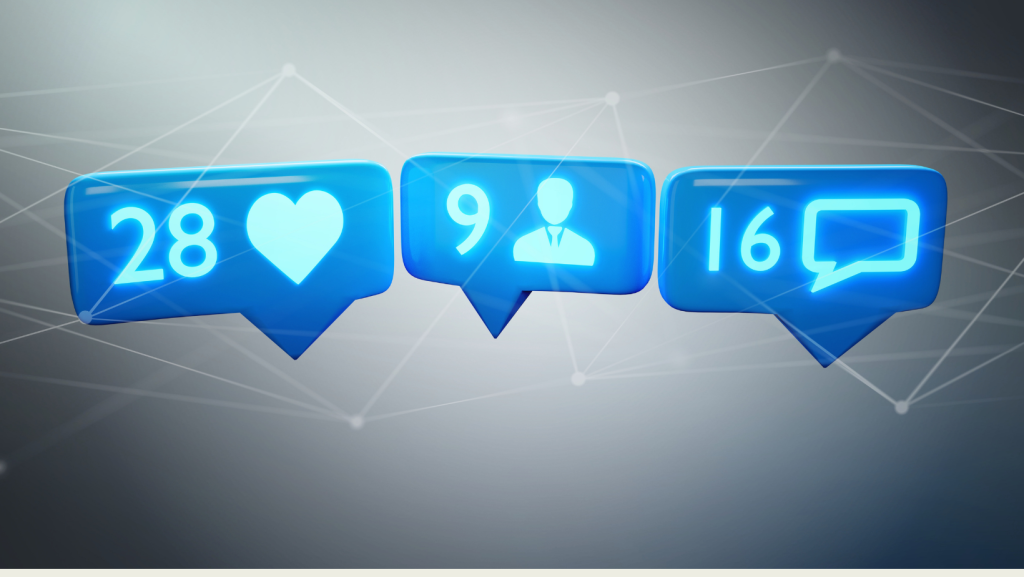
A lot, actually.
Getting Honest about Social Media: Something Doesn’t Feel Right
There’s something about a new calendar year and the promise of spring that’s conducive to cleaning. For some of us that involves major down-sizing. And, for others it’s a focus on decluttering and creating space.
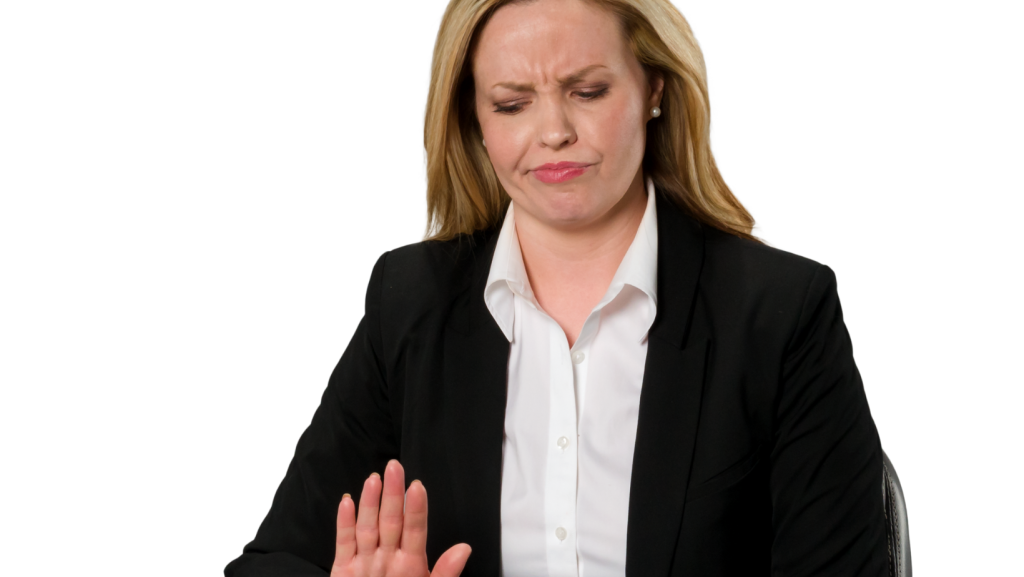
For me it’s largely about a gutsy life existential thing. You know, the whole Who am I, what do I really want, what do I need to clear out of my life? exercise.
And nothing puts that challenge in the bull’s eye like opening up one of my social media accounts.
Instagram. Facebook. Twitter. TikTok. YouTube. Next Door. All these “necessary evils” that we have welcomed into the norm of life, as if we can’t live without them.
They carry our brands, our opinions, our news, our entertainment, and our social circles. (Be honest: How many people do you consider “friends” but have never met IRL?)
I scroll, making pit stops on posts that run the gamut on content. And it’s often not until I step away that I realize how I feel on the inside.

My body, mind, and emotions have been racing through reactions, and my pulse has quickened. My concentration has been shot. And I feel a slew of negative emotions in response to the free-for-all content and comments posted by “friends” and influencers. (Wait. Is that cortisol I feel burning in my veins?)
Subconsciously, I’m aware of the damage social media is doing. A clue that, like every one of us, I need a periodic check-in and change-up.
Part of my practice is drawing attention to the harmful effects of social media. For HSPs and those vulnerable to body image issues and eating disorders, the impact can be crippling, even fatal.
(Granted, I use social media to help me spread that message; so this isn’t about “all-good vs. all-bad.”)
My intuition nags me, telling me that, if I’m feeling negatively impacted by social media, chances are my fellow-HSPs are, too.
So this open letter is my outreach to you: my way of saying, “I see you. You’re not alone. And you have options for honoring your sensitivity and preserving (restoring or even creating) your inner peace.”
Pros and Cons of Social Media for HSPs
Don’t get me wrong. I’m not “anti-social media.” Like anything else in life, it has its pros and cons, depending on how we use it.
So, let’s look at examples of both:the benefits and harmful effects of social media, for HSPs in particular. Maybe then we can make wiser choices in this digital age.

Pros of social media
-
Connectivity.
Many social-media users are too young to remember a time without direct and immediate access to anyone, anywhere. You had to spend time together in person, make phone calls from phones attached to a wall, or write letters.
For Highly Sensitive People, staying connected can be challenging for several reasons. First, we need our downtime to decompress from stimulation. Second, we have to choose our social events carefully, given our vulnerability to overwhelm. And third, our sensitivity trait can make it difficult to feel as though we fit in. at least in some situations.
Social media provides the opportunity to create our own networks for engagement. We can “socialize” without having to actually socialize. And we can find like-minded people with whom to communicate by choosing whom to “friend” and follow.
-
-
Convenience.
I’m serious about the phone-attached-to-a-wall thing. And, answering machines weren’t always around, believe it or not. Text messaging was called “passing notes in class and hoping you didn’t get caught.”
And GPS? Oh my goodness, the things we take for granted! Raise your hand if you remember having a collection of fold-out road maps in your glove compartment. Or writing exact directions on a piece of paper and pulling over to figure out your next move.
Technology and social media have completely redefined convenience. -
Access to information.
Who needs to have a daily newspaper dropped on their doorstep when they can snag the news on a minute-by-minute basis online?
Even education is being reframed in light of online classes and social media “universities” like YouTube. And literary research once relegated to endless hours in libraries can now be done from the comfort of home. -
Marketing and self-promotion.
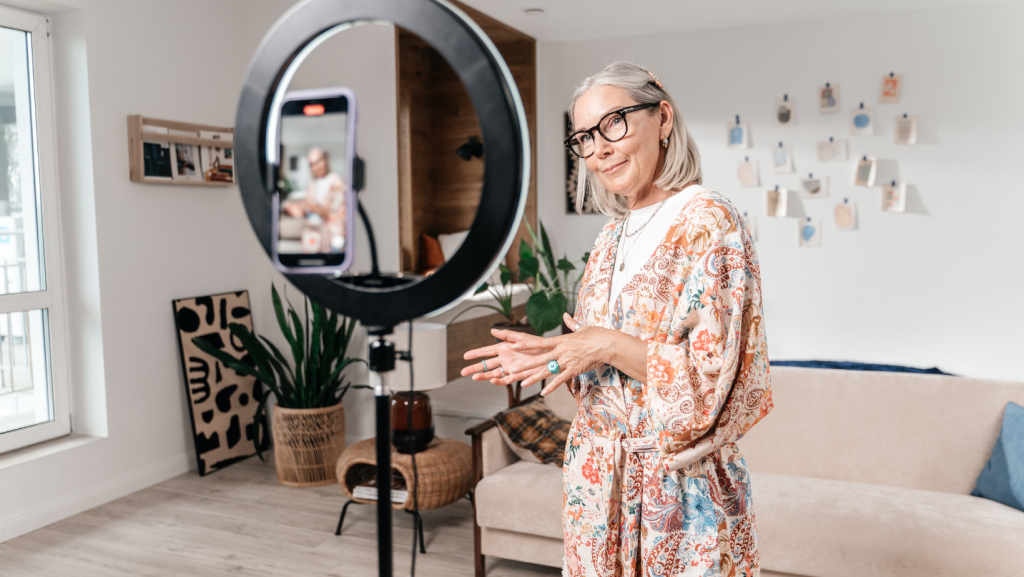
I know first-hand how powerful social media is for spreading information and connecting businesses to their target audiences. And many of its platforms are free to use.
-
-
Opportunities for remote employment.
Because of the connectivity and convenience it provides, social media has changed the way a lot of business is done. Not everything requires a physical cubicle in a downtown office anymore.
This modern shift can be a huge blessing for HSPs, who often thrive in solitary professions and/or quiet work environments.
Cons of social media
-
Skewed sense of reality.
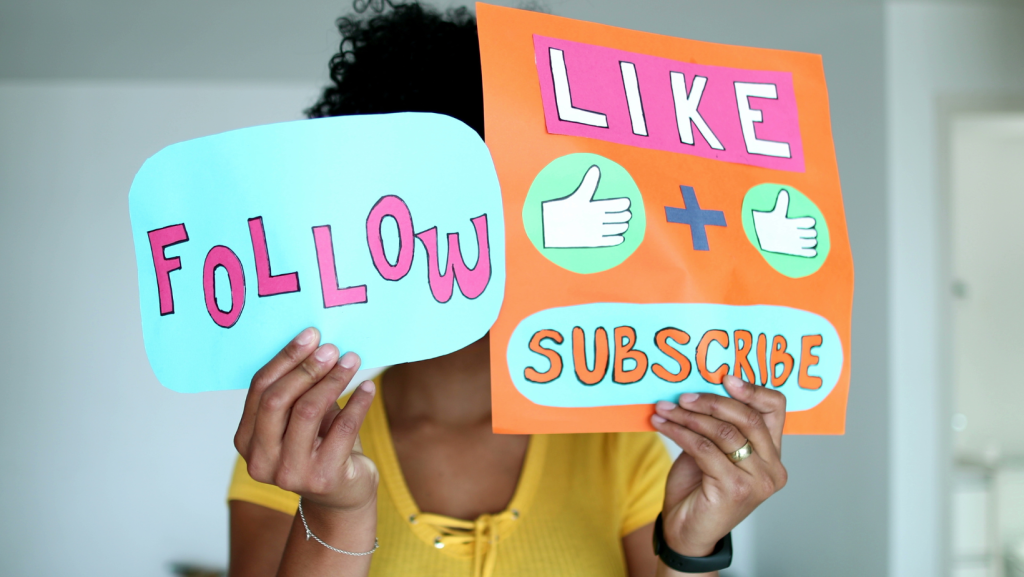
With technology advancing at the speed of light and the expectation that we all just “keep up,” reality gets lost.
For one thing, words like “friend” and sacred concepts like “friendship” have been dumbed down to labels. I can almost guarantee that most people have social media “friends” they’ve never even met.
And yet, those “friends” impact our lives, often subconsciously. We see their “perfect-life” posts and pictures, read their comments, tally their emoji reactions.
And then there are all the filtered photos that enable social media users to present the image they want viewers to believe.
Sometimes the only “reality” is what we physically and emotionally feel in response to our screen time.
For HSPs, social media can be particularly complicated.
We love the social buzz we get without having to spend time in social settings; but we cherish authenticity. We value nuanced perception, emotional reading, close friendships, deep conversations, and intimate settings: all things a typical of social media. -
Risk of social media addiction.
The risk of becoming addicted to social media can’t be overstated.
By the time you realize how much you crave that dopamine hit from approving emojis and gushing comments, the damage has been done.
Ask yourself: How soon after waking do you check your phone? How long do you spend scrolling while lying in bed or even going to the bathroom? And how much do you crave positive feedback from your friends and followers?
Just as importantly, how do you feel and ultimately behave when you do – and don’t – get the attention you crave? -
Provoked conflict.
It’s safe to say that most people dislike conflict.
But Highly Sensitive People? We loathe it.
We become an anxious mess of trying to be true to ourselves AND wanting everyone to be happy. “Please don’t be mad at me.” “I didn’t mean anything bad.” “What did I say or do wrong?” And the wound can be painful and lasting.One of the things I dislike the most about social media is how nonchalant many people are about how they engage. They’re not in the physical presence of those they’re addressing, so they get lax with their boundaries.They point fingers, call names, roll their eyes while tapping send. And all anyone else has to do to get in on it is interject their own opinion into the comment stream.
And, for whatever reason, nothing throws off the gloves like a heated political climate. Under the guise of throwing shade at politicians on “the other side,” people sweep anyone with opposing views into their hatred.

For HSPs, this creates an extremely stressful, powerless-feeling experience that can quickly lead to overwhelm and negative emotions.
-
Personal comparisons.
It’s the inevitable trap of social media: seeing the hunky-dory aspects of others’ lives and concluding that you don’t measure up. .Everyone else seems to “have it all”…and “all together”: beautiful homes, enviable vacations, idyllic relationships, “perfect” (and often technologically altered) bodies.
This is one of the most harmful effects of social media, for HSPs especially, because it can cause a downward spiral
As HSPs, our core characteristics don’t disappear or take a back seat in select situations – social media included.
We’re still going to process the veritable flood of incoming information to the nth degree.
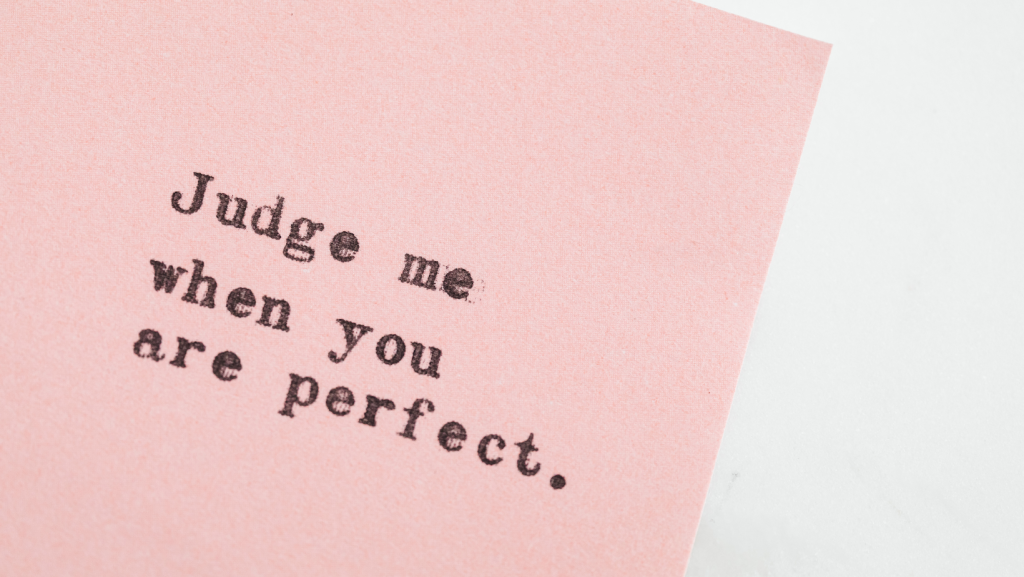
We’re going to feel every like, love, harsh comment, and absence of comment.
We’re going to wonder if we measure up. And we’re likely to ruminate on that self-doubt long after our social media “friends” are on to their next “fix.”
For people with body image issues – with or without high sensitivity – social media is a direct portal to Diet Culture. And the comparisons are rampant, even if everyone knows that plastic surgery and photo-retouching deserve much of the credit.
-
Health risks.
Social media use has been linked to health issues like anxiety, depression, and disrupted sleep. Given everything described above, is it any wonder?
Is lnner Peace Possible for HSPs in a Social Media World?
We all know that technology is only moving forward; and that means social media is here to stay. So how can we sensitive souls reap its benefits while minimizing its harmful effects?
I cannot stress enough how important self-care is for Highly Sensitive People. Our trait has been entrusted to us for a higher good; and we simply must remember the need for our own higher good.
Please remember that you are fine just as you are. You do not need to nurture a “fear of missing out” because you are already enough. And your innate ability to see into the depths of possibility can’t afford to be limited by something like social media.
Inner peace is possible in this mad, mad world of bots and algorithms. It all starts with an honest self-examination and a short-list of helpful reminders.
Here are 9 tips to give you the upper hand when it comes to the harmful effects of social media:
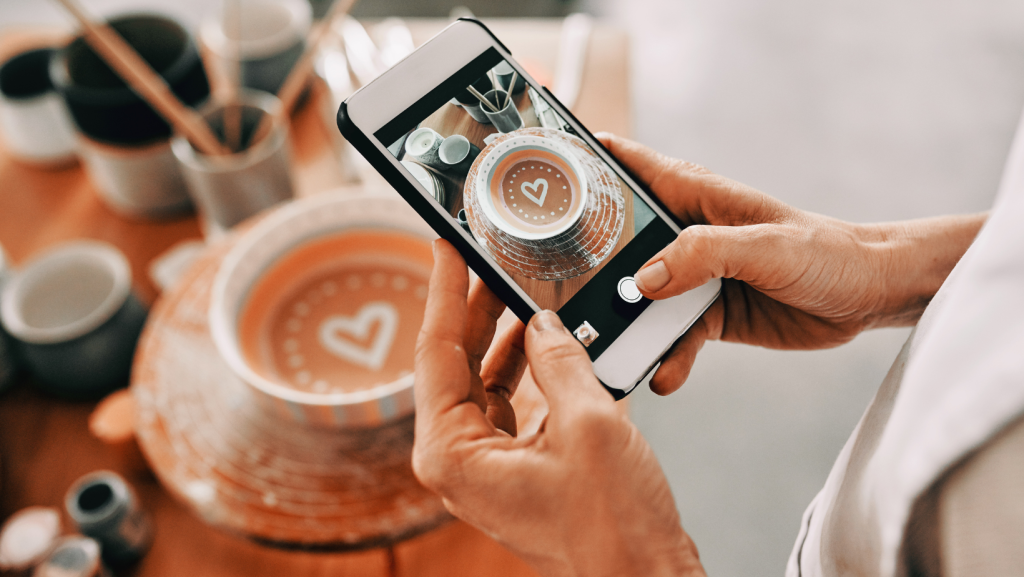
-
Ask yourself why and how you use social media.
What are you getting out of it? How does it benefit you? Are you making authentic connections? Is it a necessary platform for your brand or business? Do you use it primarily for entertainment or perhaps a distraction?
-
Check in with your body and emotions before, during, and after using social media.
Is your heart racing or calm? Do you feel anxious, depressed, uplifted, deflated, informed, happy, sad?
-
Limit your social media accounts.
Do you really need an account on all platforms? Can you reduce your social media presence to, say, one or two?
Even if you eliminate one and limit your use of the rest, you will be making progress.
-
Put boundaries around your social media use.
Sometimes we don’t realize how deep we have gotten into something until we agree to give it up – even a little.
Check your phone’s screen-time calculator to get a clear idea of how much time you’re spending face-to-face with your phone.
Then start at the beginning of your day by not checking or responding to notifications for a few hours. And at night, commit to a limited amount of screen time before bed. Turn off your phone’s volume and turn your phone over so you don’t get tempted when the screen turns on.
And, by all means, don’t bring your phone to the dinner table or bathroom.
-
Re-evaluate your connections on social media.
If you don’t even recognize a friend’s name until it shows up on the daily birthdays, perhaps an “unfriend” is in order.
As an HSP, quality always trumps quantity, anyway. And there can be a surprising comfort in paring down in the name of authenticity and meaningful connections.
Not feeling ready to completely cut the cord with some of your connections? You can always “snooze” them for a month without their knowing. Just take a trial break and see if you miss them after snoozing.Also, go through the groups and sites you follow. If any of them cause you to feel negatively about yourself or uncomfortable expressing yourself, time to delete. Life will go on. I promise.
-
Seek and make authentic connections.
This re-evaluation doesn’t have to be all about “giving up.”
Part of safeguarding yourself from the harmful effects of social media is opening yourself to its benefits. Just as there is doom-and-gloom news, there is also nothing-but-good news, too. (Check out We Inspire and see how you feel after reading some of the uplifting stories.)
Likewise, there are social media groups to match every interest and value you can think of. Find like-minded people and groups.
Being like-minded doesn’t mean you have to agree on everything. But the way people engage in a group should resonate with your values, needs, and priorities.
And you should always come away feeling better, more informed, more hopeful, more inspired.
-
Find creative ways to use your time without looking at your phone.
Yes, Virginia, there was a time when cell phones and social media didn’t exist. And there was a time when kids played outside until dinnertime and entire families shared one phone line.
I’m not implying that those were better times; but there is something to be said for simplifying, at least a little.
Be present to your life. Be present to your loved ones, your pets, your creativity. Go out into nature and just be.
-
Take micro-breaks.
Can you commit to short periods of time with no social media? Perhaps the weekends or during Christmas week, spring break, etc.? Some people even give it up for Lent, checking in only on Sundays.
This isn’t about a “crash diet”; it’s about prioritizing the rest of your life and “detoxing” from social media overuse. Remembering what’s real and what’s not.
-
Live your life, no one else’s.
Comparisons. We all make them.
Sometimes they’re a source of motivation, a way of keeping us up-to-speed with our jobs and skill sets.
But there’s also the kind of comparison that says, “I need to be doing more. Everyone else is doing abc and has xyz. Why doesn’t my life look and feel that way?”
As an HSP, you gravitate toward what is authentic, less chaotic, more intimate.
So please give yourself permission to embrace the life cultivated by your amazing trait.
“Full speed ahead” and power-jobs on Wall Street aren’t guarantees of happiness.
Knowing who you are and living into your personal fulfillment is.
My hope is that my highly sensitive readers will pause at the beginning of this year to contemplate their extraordinary worth.
And if anything – anything – causes them to doubt that worth, surely it doesn’t deserve them.
Here’s to a year of self-fulfillment.


